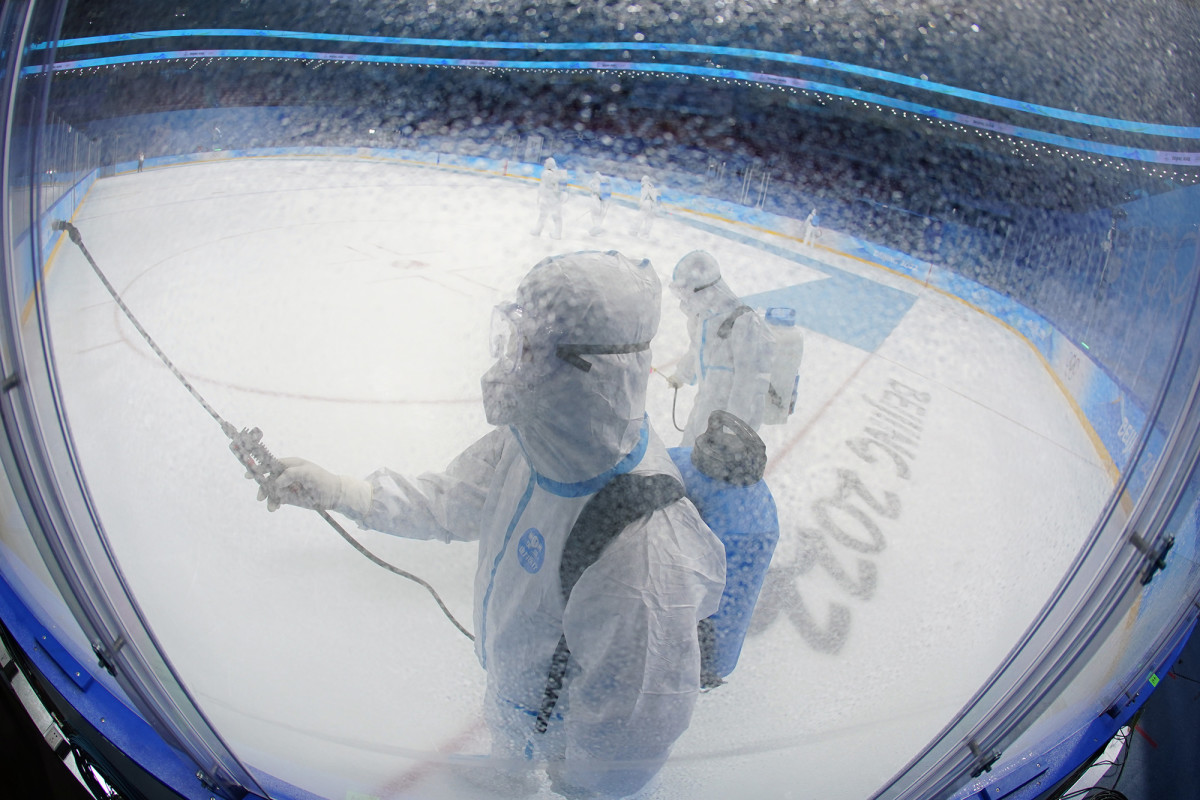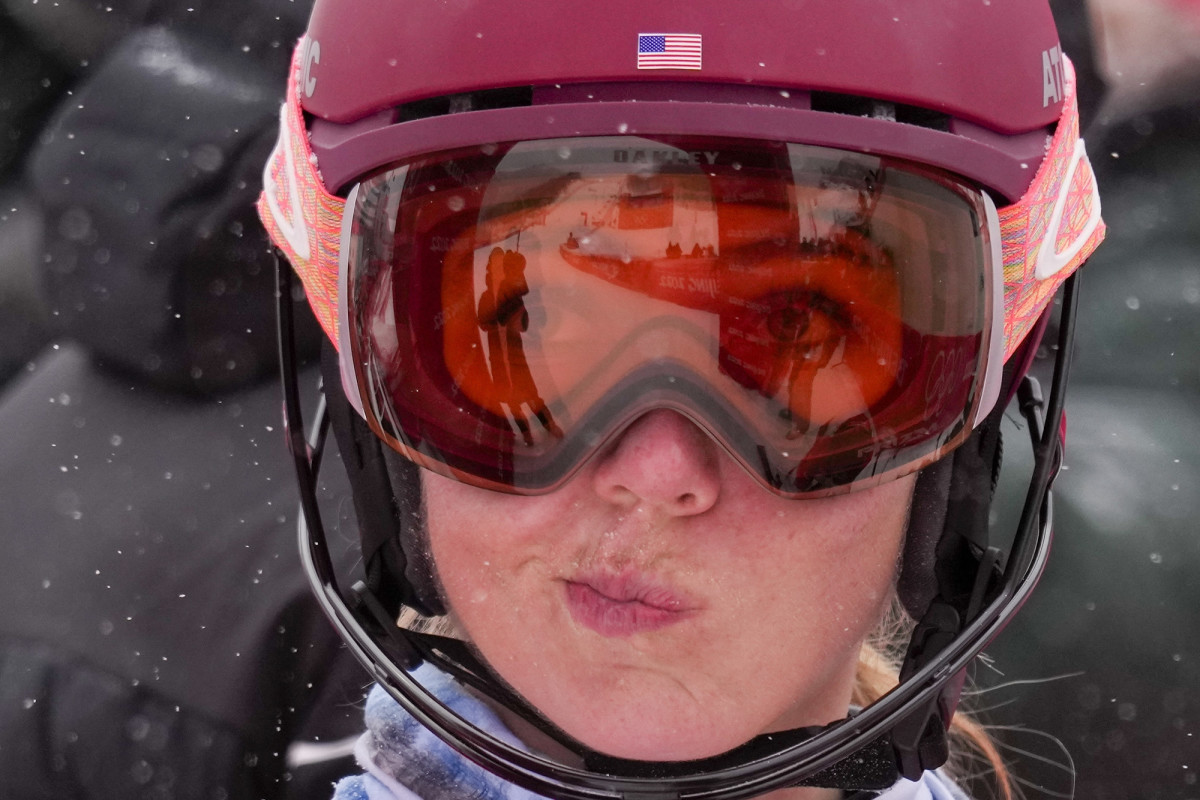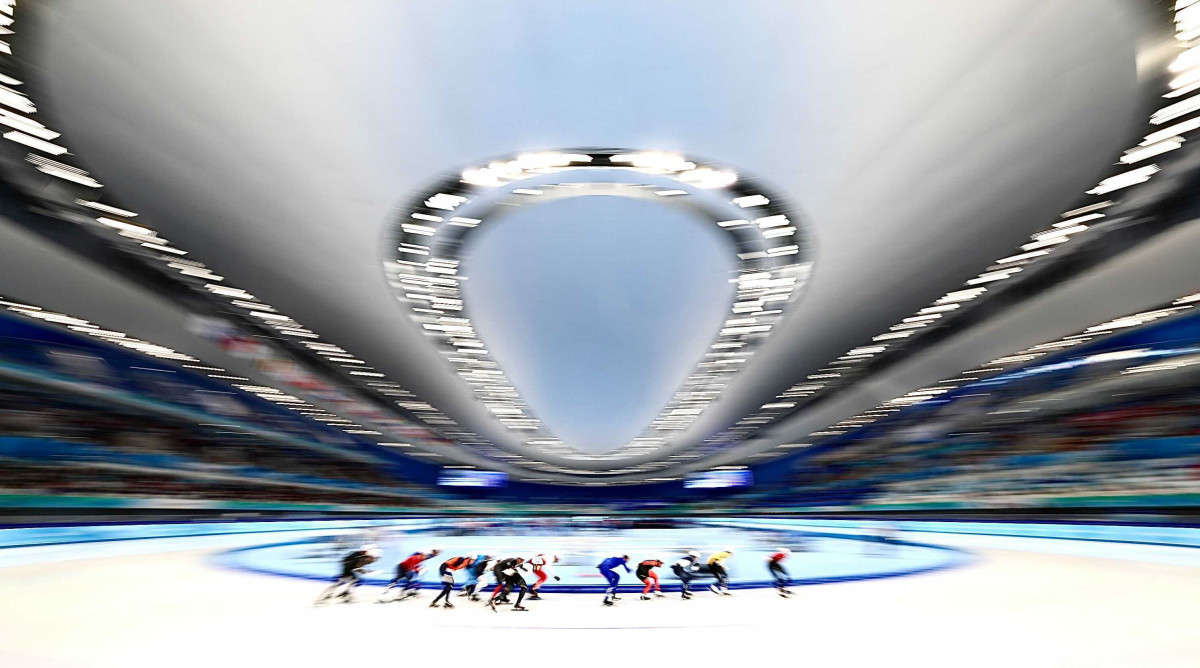It’s Not Easy Being in ‘Sports Prison’ at the Beijing Olympics


BEIJING — Every Olympics is disorienting, like being inside a foreign country inside another foreign country. The Olympics give you no sense that anything is happening outside of the Olympics. There is a giant slalom over here and bobsled not far away and halfpipe on another mountain and figure skating down in the city, and all of it feels esoteric but extremely important, and it’s all dipped in an unfamiliar culture. Food you would never otherwise eat ends up on your plate. You somehow communicate with people without either of you speaking. It can be exhausting and bewildering—but usually, it’s also a whole bunch of fun.
This has not been fun, at least not like an Olympics normally is. The Chinese government’s COVID-19 protocols do not leave much room for joy. We are all in China but would never know it. The “closed loop” means the only sights most people see are through a bus or train window, and even then, we don’t see much. There is no here here. The Bird’s Nest and Water Cube are a short walk from the Main Press Center, but walking to either is strictly prohibited. The entire experience is: food and water; transportation and work. The only restaurants where we can eat are in select hotels. I am not being sarcastic when I say the coolest indoor sights I have seen are the lobby at the Crowne Plaza Sun Palace and the lounge at the Zhangjiakou train station. Canadian snowboarder Mark McMorris called it “sports prison” for a reason.
Much of Earth’s population has it far worse, of course, but it is still jarring, and it explains why the Olympics here have presented an extra layer of difficulty for athletes. Last summer’s Games in Tokyo were a challenge; these have been exponentially harder. It’s been grim from start to finish.
Snowboarder Jamie Anderson arrived as a two-time gold medalist, had a terribly disappointing Olympics, then admitted she was having a hard time in China. Mikaela Shiffrin, a slalom wizard who suddenly couldn’t finish a slalom, might look back and wonder if the environment played a role. You would need an appalling lack of perspective to call this the “worst Olympics ever,” considering what happened in Munich in 1972. But it has certainly been the least enjoyable one in a long time. Everybody competing here dreamed of the Olympics, but nobody dreamed of an Olympics like this.

There is no crowd of Dutch speedskating fans, no packed house at figure skating. The curling is happening in the National Aquatics Center, the same building where Michael Phelps won eight gold medals in 2008, and the atmosphere obviously doesn’t compare to that, but it also doesn’t even compare to the atmosphere at curling in PyeongChang four years ago. Imagine going where you always wanted to go, then realizing you don’t want to be there.
For all the talk of mental health in sports, the last two Olympics—and especially this one—have hammered the need for proactive measures. U.S. Olympic and Paralympic Committee CEO Sarah Hirshland said last week that “the mental health resources here have actually been spread as much in the pre-Games environment as in the Games environment.” There just isn’t enough time to recover from a mental health crisis once it happens.
The last two OIympics—and, again, especially this one—have also reinforced that the Olympics present a larger psychological hurdle than most mainstream sporting events. Athletes go from relative anonymity to an enormous stage to relative anonymity again, and while they are on the stage, they can feel like their whole lives hinge on the outcome.
“We’re talking about billions of people that are following this,” said Eric Potterat, a performance psychologist who works with four athletes at these Olympics, who combined to win four gold and three silver medals. “What they do is so embedded in their identity. The Olympics aren’t every year. So I think the pressure on the athletes . . . I’m not going to compare it to combat or heart surgery or real visceral threats that people have. But perception is reality, right? These athletes work for decades, sometimes hours every day, and they have a few minutes—it comes down to a few milliseconds.”

Potterat said the athletes he worked with during the 2022 Olympics did not tell him that a COVID-19 Olympics in China were especially difficult. But it surely helped that they were prepared for a stressful experience, whatever the stressors were. He said, “This sometimes scares people, but what we need to talk about is how we mentally coach these athletes. Give them the skills beforehand, and in high-stress environments, they can navigate.”
Potterat coaches his athletes to favor process over outcome, and to think about who they are, not who others perceive them to be. But he also tells them this: “Have fun. It’s a privilege. You’re already there. People who [have] fun, they tend to be loose and are in the zone.” It is a straightforward concept. But I suspect that a lot of athletes would agree: You have to be here to know how hard it is to be here.
More Winter Olympics Coverage:
